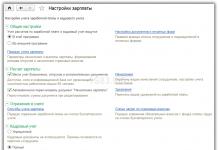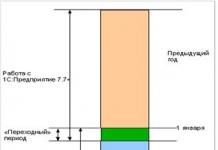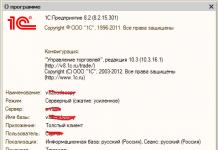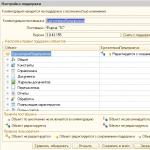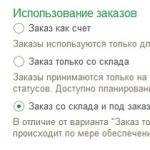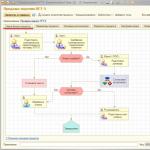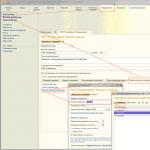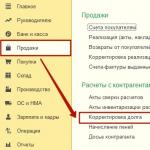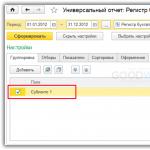It was smooth on paper, but they forgot about the ravines. The words of this saying very accurately reflect the mistakes in the production of insulation work. Often, when thermally insulating a building, they do not think about the insulation of engineering networks, which leads to heat loss in an openly laid heating plant, freezing of water supply and sewage pipes.
Ignoring technical insulation in residential, civil, industrial, military construction leads to disastrous consequences and high material costs. Thermal insulation basalt mats are used as an effective protection and insulation of engineering systems.

Basalt heat-insulating mats are used as thermal insulation:
- ventilation and air conditioning systems;
- pipes for the removal of heated gases;
- electrostatic precipitators;
- tanks for storage of liquids and liquefied gases;
- power and other equipment;
- flat and curved horizontal and vertical planes at industrial facilities (exceptions are food production buildings);
- hot water and superheated steam supply systems;
- pipelines in the oil and gas industry.

Basalt heat-insulating mats provide heat, sound, vapor barrier, as well as decorative finishing of equipment in the interior.
So they are good?
The heat-insulating mat is made from fibers obtained by melting natural volcanic stone - basalt. It defines the main characteristics and properties of pierced basalt mats.
Good heat-retaining capacity is achieved by the presence of a large amount of still air in the voids of the mat. It is in the range of 0.035 - 0.04 units.
Materials made of mineral fibers have increased resistance to moisture due to the stone base and hydrophobic impregnation. The maximum amount of moisture is 1% of the insulation volume.

Basalt fiber mats are distinguished by high chemical inertness to various kinds of chemically active substances, metals, mortars and materials, oil products. Upon contact with them, they do not collapse, do not lose their integrity and thermal insulation ability.
Biological stability is on top. The materials do not spread fungus and mold inside themselves and on their surface, do not rot, do not serve as food for rodents and insects. For representatives of the animal world, it is extremely difficult to equip dwellings in the internal volumes of a heat insulator.
Basalt mat belongs to the category of non-combustible heaters due to the stone component. The exclusion from the production of a binder in the form of formaldehyde resin completely eliminated the release of harmful substances into the atmosphere during heating and melting. Unlike general building insulation, they have a fairly wide operating temperature range: - 180 to + 570 ° C.
The flashing of the entire volume with glass roving without adhesive composition provides a certain mobility of the fibers. This allows basalt heat-insulating mats to take the form of insulated systems with the most complex configuration without loss of integrity.
The heat-insulating mat has sufficient environmental safety, which is confirmed by the relevant environmental certificates. Work with it can be carried out in the presence of the simplest means of protection. It is not recommended to neglect their use during installation.
In mats, the insulation has a sufficient density (about 35 - 45 kg / m 3) to simultaneously be an excellent soundproofing barrier. This quality is especially important in the construction and reconstruction of production facilities.
Stitched thermal insulation materials have a sufficiently high vapor permeability, which creates favorable conditions for the removal of saturated water vapor from the equipment through the insulation (mats) into the environment.

The use of igneous rock as the starting material makes it possible to provide the heater with an infinite service life. However, it is impossible to exclude the harmful effects of natural factors, as well as the loss of stiffness of the fibers during operation, which will inevitably lead to material compaction and an increase in the specific thermal conductivity. According to the manufacturers, the heat-insulating mat has a service life of 25 years.
Very close to them in quality are heat-insulating mats made of glass staple fiber, produced in accordance with GOST 10499-95. But they have one significant drawback - extremely low environmental safety, especially during installation. Sufficiently serious protection of the skin, respiratory organs and eyesight of installers is required.
Linear dimensions
Mineral mats from different manufacturers have different sizes and the same rectangular shape. Due to the similarity of the main operational parameters, it is not necessary to be tied to any one manufacturer. It is necessary to choose those materials that are optimally suited to the insulated equipment, installation, pipeline.
The length varies from 2.4 to 12 meters depending on the thickness. It causes convenience of warehousing and transportation to the place of work.
Stitched mats have a width of 1 or 1.2 m. This value allows one person to perform insulation work, subject to safety requirements.
The thickness ranges from 20 to 100 mm, ensuring the selection of such a layer thickness that will allow insulation to be carried out according to the calculated values with saving money on purchase.
Additional layers and accessories
To give a part of the manufactured products, various lining materials are used, which allow you to change the maximum temperature of application:
| Name of the lining | Marking | Limit temperature, o C |
|---|---|---|
| Metal grid | MS | 700 |
| Basalt fabric | BT | 700 |
| silica fabric | CT | |
| fiberglass | ST | |
| fiberglass mesh | SST | 450 |
| Basalt fiber mesh | Sat | |
| Fiberglass non-woven canvas | HNS | |
| aluminum foil | F | 300 |
Foil insulation mats are often used to insulate refrigeration units. The foil layer provides a reflection of infrared external radiation, thereby ensuring the preservation of low temperatures in the pipelines of refrigerators.

For the convenience of work, some manufacturers produce mats with clamps. They will allow you to fix the heat-insulating layer on any linearly extended object at no extra cost.
Mineral wool mats will provide the necessary temperature conditions for the operation of any industrial and technological equipment with minimal costs for the acquisition, installation and operation.
Mineral wool is available in a variety of options, as it has a fairly wide scope. One of its forms are stitched soft mats. They are made from interwoven thin basalt fibers, which are fastened together not with synthetic resins, but with nylon, fiberglass or bast threads.
Modern heat-insulating stitched mats are manufactured in accordance with GOST 21880-2011, although different manufacturers may develop their own specifications. In fact, we are talking about really safe basalt insulation, in which there are no formaldehydes, phenols and other toxic substances.
The absence of thermoplastic bonds may impair the aesthetics and workability of the boards, but it effectively solves other problems. Light mineral wool performs the functions of thermal insulation better, but due to the hard cord of the firmware, it retains a constant volume. The only drawback of such mats was high hygroscopicity. That is why, on the basis of the current GOST, separate specifications were developed that allow impregnation of heaters with water-repellent compounds.

Types and features of mats
Stitched mats have standard basalt wool thickness options from 40 to 200 mm, but may differ in size from traditional slabs. Their length ranges from 1-5 m, width - 0.5-2.5 m. But the main classification of mineral wool products is tied to their density. In accordance with it, there are three types of thermal insulation:
- M-75 - mineral mats with a specific gravity of up to 85 kg / m3 have a fairly high thermal conductivity of 0.046 W / m ° C. Other characteristics are also not impressive: compressibility is about 55%, tear resistance is the lowest in the group and in our review (80 N).
- M-100 - have a density of 90-100 kg / m3 and thermal conductivity R \u003d 0.04 W / m ° C. The compressibility of the plates is 36%, they withstand 100 N at break. However, the difference in price between them and MP-75 is small.
- M-125 - dense stitched mats (110-135 kg / m3) with a conductivity coefficient of about 0.044 W / m ° C. Breaking load resistance - up to 120 N.
Also today you can buy plates of lightweight M-35 and M-50 series, but these brands are not fixed in GOST.
The main difference between stitched products and other heaters is high temperature resistance. The absence of consumable bonds makes the mats completely non-combustible and allows them to withstand heating up to +800..+1200 °C, while conventional heat-insulating boards retain their shape only at +600°C. This also led to low resistance to loads - the compressibility of soft mats, according to the technical description, often approaches 40%, that is, the effective thickness of the insulating layer under pressure can be violated. But without external influence, basalt wool retains its shape well and does not shrink - the stiffness of the fibers is enough for this.

Heat-insulating mats can come with facings of different materials:
- Metal mesh (MC brand). For example, the TechnoNIKOL company uses different types of wire as a lining: black, galvanized or galvanized.
- Fiberglass (CT or M3) - reduces the heat resistance of mats to +450 ° C, but according to reviews, it facilitates installation.
- Roofing or corrugated cardboard (M4) - with a similar lining, mineral wool is not used at temperatures above +80 ° C, and it is difficult to buy such thermal insulation today.
- Paper (M5). This is also the designation of mats laminated with a vapor barrier PET film. Their installation is allowed only on bases that do not heat up above +60 °C.
- Aluminum foil - this product is most in demand today due to the vapor barrier of the coating, but it also has a rather high cost. But combined thermal insulation can be freely purchased by finding a suitable option in the assortment of Rockwool, Paroc or TechnoNIKOL.
If lamination is performed on only one side, the stitched mats are marked M2-1, on the two sides - respectively M2-2. The absence of additional designations, the letters M1 or MP indicate that the insulation comes without lining.

Application
Stitched mats are considered an independent type of technical thermal insulation and are used to protect communications and equipment (including high-temperature equipment), as well as in the construction of vehicles. But in everyday life they can often be found in unloaded structures:
- In ceilings.
- In internal partitions (if these are sufficiently dense pierced heat-insulating plates).
- When insulating smoke, water, heating pipes and ventilation ducts.
But do not forget that basalt insulation in conditions of a large temperature difference or used outdoors itself needs additional waterproofing. Therefore, it is used in tandem with light-resistant film materials that have good vapor permeability.
Stitched mineral wool mats without linings are only suitable for thermal insulation for pipes - they are no longer suitable for anything, since their performance characteristics are rather weak. But the presence of the same metal mesh significantly expands the scope of combined insulation. Here it already becomes possible to lay in vertical structures and even use in ventilated facade systems (provided that the basalt wool is covered with a windproof membrane that prevents the fibers from blowing out).
Mineral wool mats are also an excellent solution for warming wooden buildings where the same “breathable” materials are needed. Only basalt thermal insulation provides normal moisture exchange for log cabins and timber frames, which guarantees their durability, prevents warping and decay of the forest. With its help, fire cuts are also created in walls, openings, in places where hot chimneys pass through ceilings and roofs.
And, of course, not a single construction of a bath or sauna can do without mineral mats. At fire-hazardous objects, it is necessary to use only non-combustible heat-insulating boards that retain their shape and thickness even under the influence of high temperatures.
Price
| brand | Title, cover | Density, kg/m3 | Dimensions, mm (LxWxH) | Price per unit, rubles |
| TechnoNIKOL | Techno 100, | 90 – 110 | 2400x1200x100 | 1340 |
| Isorok | MP-100, | 85 – 110 | 2000x1200x60 | 320 |
| Paroc | Pro Wired Mat 80, | 80 | 3000x600x80 | 790 |
| Rockwool | Tech Mat | 35 – 50 | 5000x1000x50 | 1550 |
| hotpipe | WM TR, | 50 | 4000x1000x60 | 1180 |
Basalt fiber embroidered mats are produced from various types of inorganic slags, which are obtained as a by-product in the blast-furnace industry. They are sold in rolls which, when unfolded, form a wide rectangular canvas. Basalt mats are used to provide thermal insulation of civil and industrial buildings and structures during construction work.
Advantages of basalt mats:
- reliable thermal insulation in a wide temperature range (from -180°С to +700°С);
- high resistance to fire - even at temperatures above 1000 ° C, only sintering of the material occurs;
- excellent property - damping of sound waves due to maximum porosity;
- the material is inert with respect to various chemically active substances: solvents, acids and alkalis;
- not subject to rotting, as well as to the influence of mold fungi and other microorganisms;
- the ability to absorb many types of radiation, which allows the use of mats at nuclear and thermal power plants.
-
Paroc Pro Wired Mat 80 (80VM)
A pierced stone wool mat with a density of 80 kg/m3 is used to insulate cylindrical, conical and flat surfaces, as well as ventilation ducts as thermal and fire insulation. Galvanized steel mesh stiffens the insulation and facilitates installation. Application temperature up to +640°C.
Price from 453.50 rubles.
-
Sewing mat XOTPIPE WM-TR ALU1 80
XOTPIPE WM-TR ALU1 80 fire retardant mats with a density of 80 kg/m3 with a galvanized mesh lining, stitched with stainless steel wire. A layer of strong aluminum foil 50 microns thick prevents stone wool fibers from being blown out. They are used for thermal insulation and fire protection of air ducts. The mats have been certified for fire resistance according to GOST from EI 90 to EI240.
Price from 415.16 rubles.
-
Paroc Pro Wired Mat 80 AL1
Wired mat Paroc Pro Wired Mat 80 AL1 made of mineral (stone) wool with a density of 80 kg/m3 (modification of Wired 80 mats), with a layer of aluminum foil 0.04 mm thick between the outer mesh and the mat. It is used as fire protection of air ducts and ventilation ducts. Insulation application temperature - up to + 640 °C.
Price from 478.70 rubles.
-
Stitched mats PAROC
PAROC Wired Mat embroidered mineral wool mats are used as a heat-insulating material, for insulating large-diameter pipelines in various technological industries, insulating production equipment and individual structural elements with a complex geometric shape, and as a fire-insulating material.
Price from 438.50 rubles.
-
Paroc Wired Mat 80 AluCoat (80ACVM)
Stitched stone wool mat with a density of 80 kg/m3, equipped with a galvanized steel mesh and reinforced with fiberglass-based aluminum foil glued to the mat. It is used to insulate cylindrical, conical and flat surfaces, as well as ventilation ducts as thermal and fire insulation. Application temperature up to +640 °C.
Price from 506.90 rubles.
-
Sewing mat XOTPIPE WM-TR ALU1 100
Fire-retardant mineral wool mats XOTPIPE WM-TR ALU1 with a density of 100 kg/m3 with a lining of galvanized mesh, stitched with stainless steel wire. A layer of strong aluminum foil 50 microns thick prevents stone wool fibers from being blown out. They are used for thermal insulation and fire protection of air ducts. The mats have been certified for fire resistance according to GOST from EI 90 to EI240.
-
Paroc Pro Wired Mat 100 AL1
Sewing mat Paroc Pro Wired Mat 100 AL1 made of basalt wool with a density of 100 kg/m3. The insulation is equipped with a layer of aluminum foil 0.04 mm thick, which is placed between the mesh and the mat. Designed to insulate cylindrical, flat and conical surfaces, as well as ventilation ducts as thermal insulation and fire insulation. Operating temperature up to + 660 °C.
Price from 537.10 rubles.
-
Paroc Wired Mat 100 AluCoat (100ACVM)
A pierced stone wool mat with a density of 100 kg/m3, equipped with a galvanized steel mesh and fiberglass-based aluminum foil, is used to insulate cylindrical, conical and flat surfaces, as well as ventilation ducts as thermal and fire insulation. Application temperature up to +660 °C.
Price from 537.40 rubles.
-
Paroc Pro Wired Mat 100 (100VM)
A pierced stone wool mat with a density of 100 kg/m3 is used to insulate cylindrical, conical and flat surfaces, as well as ventilation ducts as thermal and fire insulation. Galvanized steel mesh stiffens the insulation and facilitates installation. Maximum operating temperature +750°C
Price from 438.50 rubles.
-
Sewing mats XOTPIPE
Mineral wool mats stitched with a mesh of various types of material. Designed for fire protection and thermal insulation of air ducts, insulation of pipes of large diameters. Mineral wool base provides non-combustible properties. Fast delivery of insulation Xotpipe (Hotpipe) on weekends.
Price from 372.36 rubles.
-
Sewing mat XOTPIPE WM-TR ALU1 50
Mineral wool mats with a density of 50 kg / m3 with a lining of galvanized mesh, stitched with stainless steel wire. A layer of strong aluminum foil 50 microns thick prevents stone wool fibers from being blown out. They are used for thermal insulation of air ducts, pipelines and process equipment.
-
Sewing mat XOTPIPE WM-TR 80
Mat Xotpipe WM-TR 80 is a heat-insulating pierced mat made of basalt wool. XOTPIPE stitched mats are designed for thermal insulation and fire protection of air ducts, thermal insulation of equipment, tanks, heating networks, main and industrial pipelines with a carrier temperature of up to 750 ° C, as well as building structures for various purposes.
Price from 372.36 rubles.
-
Sewing mat XOTPIPE WM-TR 100
Xotpipe WM-TR 100 is a heat-insulating pierced mat made of basalt wool with a synthetic binder. Designed for thermal insulation and fire protection of air ducts, thermal insulation of high-temperature equipment, tanks, heating networks, main and industrial pipelines with carrier temperatures up to 750°C.
-
Sewing mat XOTPIPE WM-TR 50
Mat Xotpipe WM-TR 50 is a heat-insulating pierced mat made of basalt wool with the use of a synthetic binder. XOTPIPE stitched mats are designed for thermal insulation and fire protection of air ducts, industrial equipment, tanks, large diameter pipelines, as well as building structures for various purposes.
-
Paroc Pro Wired Mat 80 W2
A stitched stone wool mat with a density of 80 kg/m3 with a stainless mesh is used to insulate cylindrical, conical and flat surfaces, as well as ventilation ducts as thermal and fire insulation. Application temperature up to +750°C.
-
ROCKWOOL ALU 1 WIRED MAT 105
Rockwool Alu Wired Mat 105 mats covered with galvanized wire mesh laminated with non-reinforced aluminum foil to ensure the fire resistance of transit ducts and smoke extraction systems.
Price from 399.00 rub.
-
Paroc Pro Wired Mat 100 W2
A stitched stone wool mat with a density of 100 kg/m3 with a stainless mesh is used to insulate cylindrical, conical and flat surfaces, as well as ventilation ducts as thermal and fire insulation. Application temperature up to +660°C.
-
ROCKWOOL ALU WIRED MAT 105
Rockwool Alu Wired Mat 105 mats covered with galvanized wire mesh laminated with glass-reinforced aluminum foil to ensure the fire resistance limit of transit air ducts and smoke extraction systems.
Price from 360.90 rubles.
-
ROCKWOOL ALU 1 WIRED MAT 80
Rockwool Alu 1 Wired Mat 80 stitched mats, coated on one side with non-reinforced aluminum foil, to increase the fire resistance of smoke extraction systems and transit ducts.
Price from 465.60 rubles.
-
Paroc Pro Wired Mat 130 AL1
Stitched mat made of basalt wool with a density of 130 kg/m3, equipped with a layer of aluminum foil 0.04 mm thick between the outer mesh and the mat. It is used to insulate cylindrical, conical and flat surfaces, as well as ventilation ducts as thermal and fire insulation. Application temperature up to + 680 °C.
-
Paroc Wired Mat 130 AluCoat
A pierced stone wool mat with a density of 130 kg/m3, equipped with a galvanized steel mesh and fiberglass-based aluminum foil, is used to insulate cylindrical, conical and flat surfaces, as well as ventilation ducts as thermal and fire insulation. Application temperature up to +680 °C.
-
Paroc Pro Wired Mat 140 (140VM)
PAROC Pro Wired Mat 140 is a 140 kg/m3 high density woven mat for thermal insulation of steam lines, boilers and other high temperature facilities and industrial equipment. Maximum operating temperature +750 °C.
-
ROCKWOOL ALU WIRED MAT 80
Rockwool Alu Wired Mat 80 coated on one side with reinforced aluminum foil to increase the fire resistance of transit ducts and smoke extraction systems.
Mineral wool is a thermal insulation made of stone, for example, basalt (TechnoNIKOL). There is a lot of air in its structure - at least 90%, due to which it has a low coefficient of thermal conductivity. Mineral wool is produced in the form of slabs, ordinary rolls and stitched mats without lining or with it. That is, one or two sides of the thermal insulation can be covered with foil, fiberglass, glass mesh, metal mesh, paper or other material. The mat is stitched through longitudinally or across with a thin wire, strong nylon or glass thread. Thanks to this method of manufacturing pierced heat-insulating boards, the amount of organic binder introduced is reduced. In addition, because of this, physical and mechanical characteristics increase.
The mats are produced only stitched and depending on the lining material the degree of their possible temperature load changes. They are also produced in various lengths from 1 to 6 m with a width of 50, 60 or 100 cm, the latter option is most often used. The thickness of the mineral wool mat can be from 20 to 120 mm depending on the application. An important feature of such thermal insulation is its increased resistance to fire. For a long time from half an hour, it protects structures from damage, and also does not allow the fire to spread further. The maximum possible heating temperature can reach +750°C (sometimes even up to +1100°C), as the stitched mats are made from mineral wool. Due to this, judging by the reviews of manufacturers and specialists, the time for evacuating people and equipment from the building is significantly increased.

Since the mats are stitched, they have good resilience and compressibility. As a result, the stitched heat-insulating plates of TechnoNIKOL or another brand fit perfectly to almost any type of base and structure. At the same time, they have a small weight, due to which significant pressure is not created on the insulated object. The dense structure allows to withstand mechanical loads.

An overview of the positive qualities of the mineral mat:
1. low coefficient of thermal conductivity - 0.03-0.04 W / (m K), due to which heat losses can be reduced by 42%;
2. non-flammable material with a small amount of smoke emitted;
3. excellent soundproof performance;
4. environmentally friendly and safe;
5. resistant to high temperatures and various acids, oils, alkalis;
6. weak ability to absorb water and vapor permeability;
7. not a habitat for rodents and does not support the growth of mold and fungi;
8. long service life - 50 years;
9. does not lose its structure even under the constant influence of vibration;
10. does not rot and is not afraid of corrosion;
11.Easy installation and convenient transportation.
The following types of pierced roll thermal insulation are produced:
- M1 or MP - without lining;
- M2 or MS - with a metal mesh;
- M3 or ST - with fiberglass.
Mats marked M1 and M2 withstand temperatures up to +750°C, and M3 - no more than +450°C. The cost at which you can buy them is significantly affected by the lining material.

Application area
Due to its heat-insulating and fire-resistant characteristics, pierced insulation is used in private and industrial construction (automotive and aircraft construction). Also in the food industry, for laying on wavy, cylindrical, rounded surfaces, such as pipes, air ducts, steam lines, electrostatic precipitators and much more. Turbines, boilers, dryers, steam generators, cooling chambers are trimmed with pierced mineral wool mats without lining and with it in order to reduce noise and heat loss. Often they are mounted in ventilation systems. In addition, basalt pierced thermal insulation is used to protect various equipment (boilers), tanks, vehicles.
In the construction of buildings with a small number of floors, it is used in the construction of frame partitions, attics, attics, walls, baths or saunas. In addition, stitched mats are used as a middle layer in the ceilings between floors and in cladding areas.
Price
Prices for rolled stitched thermal insulation depend on the brand, thickness, density, as well as the presence of a lining. Price table at which you can buy heat-insulating stitched mats:
| Name | Thickness, mm | Type of lining, number of sides finished with it | Price for 1 m3, rubles | |
| M1-75 | 50-60 | — | 2100 | |
| M2-75 | 50 | MS with one | 2600 | |
| 60-70 | 2530 | |||
| 50 | MS from two | 3000 | ||
| 60-70 | 2950 | |||
| M3-75 | 50 | ST from one | 2550 | |
| 60-70 | 2500 | |||
| 50 | ST from two | 3000 | ||
| 60-70 | 2850 | |||
| M1-100 | 50-100 | — | 2250 | |
| M1-125 | 50-80 | — | 2600 | |
| M2-100 | 50 | MS from two | 3150 | |
| 60-100 | 3050 | |||
| M3-100 | 50 | ST from two | 3150 | |
| 60-100 | 3000 | |||
| M3-125 | 60-80 | 3350 | ||
| rockwool | MP-75 | 50-100 | — | 1850 |
| MP-100 | 50-100 | — | 2050 | |
| MP-100 | 60-80 | MS with one | 2700 | |
| MP-125 | 50-100 | 2800 | ||
| TechnoNIKOL | TH80 | 40 | steel wire | 5200 |
| 100 | 4200 | |||
| TN 80 G1 | 40 | Galvanized wire and laminated with aluminum foil | 6700 | |
| 100 | 4900 | |||
| TN 100 | 40 | steel wire | 5850 | |
| 100 | 4300 | |||
| TN 100 G1 | 40 | Steel wire and laminated with reinforced foil | 7150 | |
| 100 | 4800 | |||
It is important to follow the manufacturer's instructions for storage and transportation. Folding stitched mats is allowed only in covered areas or under a canopy, the main thing is that they are not exposed to atmospheric precipitation. The height of a stack of mineral wool stitched insulation should not be more than 3 m. Rolled thermal insulation of this type is used only as a non-loaded material. For construction, you should purchase products stitched longitudinally. All installation work can be done by hand.
Mats are highly demanded products. This is due to the versatility that mats differ in and their excellent performance characteristics. This is a very effective thermal insulation.
Scope of heat-insulating mats
Thermal insulation mats are used in a wide variety of fields. Among them:
- construction of civil and industrial types, where mats are used;
- creation of internal sound and heat insulation of floors, walls, pipes, frame-type partitions, tanks, boilers, chimneys;
- ensuring fire protection of facilities where mats are used;
- thermal and sound insulation of thermal equipment, hardening and heating furnaces.
Properties of thermal insulation fiber
Mats of this type are also called foil mats. Their distinctive feature is the subtlety, which is about 3 centimeters. A special foil type material is attached to the base of the product. It is intended to be located directly under the pipes, as a result of which the heat transfer of the warm floor increases.
Polystyrene mats have excellent technological characteristics. Among them:
- resistance to burning, characteristic of mats;
- excellent heat-insulating properties, which these mats possess;
- resistance to aggressive environmental influences, as well as various chemical compounds, which distinguishes this thermal insulation;
- resistance to vibrations, which distinguish mats.
All these features provided the material with a very wide scope of application. The use of heat-insulating mats is advisable in various areas of shipbuilding, thermal power engineering, aircraft engineering, oil and gas industry, etc. An additional advantage that distinguishes the mat is its perfect non-toxicity and environmental safety, which makes it possible to use this heat-insulating material even in educational and medical institutions.
Thermal insulation mats: advantages
Such heat-insulating material as mats made of basalt fiber has many advantages. Among them it is worth noting:
- excellent ability to provide thermal and sound insulation;
- fire safety and fire resistance (this material belongs to the flammability class NG);
- resistance to the effects of microorganisms and rodents, the occurrence of decay;
- high parameters of vapor permeability, ensuring the preservation of the level of diffuse resistance of structures;
- excellent hygroscopicity;
- availability of a wide range of standard sizes.
By individual order, it is possible to manufacture heat-insulating mats of any size. We will create for you mats of the necessary shapes and sizes.
Mats have a wide range of applications. They are suitable for use as:
- building thermal insulation, insulating floors, walls, ceilings, partitions of various building structures, tanks and boilers;
- thermal insulation intended for ships;
- insulation in industrial equipment and units;
- thermal insulation of boiler room equipment.
Mats can be of various types and types, which differ in the composition of the rocks used. They are divided (depending on indicators such as fiber thickness) into coarse, thick, thick, super-thin, ultra-thin and micro-thin. In order to obtain material for mats, blowing heads of different shapes are used in production, as well as various types of spray devices. In our company you can purchase various types of mats at an affordable cost. Our mats are of high quality and reasonable price. We are glad to mutually beneficial cooperation!
